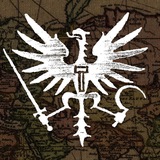Series “Iron Age” (2004) by Moscow artist Alexei Belyaev-Gintovt. These works can still often be found as illustrations in Russian and foreign publications.
“Kerouac described himself as a ‘strange solitary Catholic mystic’ whose ecstatic vision of life was the direct result of an eschatology of the end of time. What he longed for was contact with the heavenly eternity overlaying and occasionally penetrating our anodyne perceptions of time. ‘Life is a dream already over,’ he said. It was the furthest thing from an existential claim of the primacy of death and absurdity. It was life reinvigorated by recognition of a transcendent reality.”
— Scott Beauchamp, “Debunking the Caricature of Jack Kerouac the Nihilist”
— Scott Beauchamp, “Debunking the Caricature of Jack Kerouac the Nihilist”
Media is too big
VIEW IN TELEGRAM
In a somber recording from the year 2013, mere months before his suicide within the hallowed confines of Notre Dame, Dominique Venner elucidated on his perceptions of a nefarious elite. He contended, with a tone steeped in foreboding, that this elite’s unrelenting advocacy for mass immigration was, in essence, a macabre sowing of seeds destined to burgeon into future ethnic war.
“One interesting author whose books mostly await translation is the 19th-century economist and philosopher Eugen Dühring. Professor Dühring was the father of Prussian socialism. Before Sombart or Spengler, Dühring was the first thinker to see in the Prussian tradition the antidote to plutocracy. He was also an underrated influence on Nietzsche. Rudolf Steiner argued that much of Nietzsche’s concept of the eternal recurrence owed to Dühring. Additionally, Dühring was a profound negative influence on Friedrich Engels, who wrote a whole book called Anti-Dühring. In addition to economics, Dühring also wrote on the philosophy of science. From what I understand, Dühring’s views on the relation between science and politics were nuanced – not as scientistic as Engels but not as anti-scientistic as Sorel. Dühring is also notable in Romanian intellectual history for having been Romanian national poet and editorialist Mihai Eminescu’s teacher; Dühring influenced Eminescu’s views on political economy, and also his ideas about recurring time. Dühring’s unabashedly hostile book on the Jews has been translated into English, but his less controversial books on economics and the philosophy of science have not. I think that would be a worthy translation project.”
– Amory Stern
– Amory Stern
Friedrich Georg Jünger and the Titanic Allure of Technology
by Constantin von Hoffmeister
In his seminal work, The Failure of Technology: Perfection without Purpose, Friedrich Georg Jünger (1898-1977), younger brother of Ernst Jünger and a notable German writer and philosopher in his own right, observed the titanic nature of technology and how mankind’s kinship with the Titans is reflected in our pursuit of the enormous, the gigantic, and the colossal. This observation, penned in 1946, resonates with startling clarity in our current era, dominated by the advancements in artificial intelligence (AI) and virtual reality (VR), and vividly depicted in cultural artifacts like the Terminator movies.
Jünger’s perspective illuminates the essence of human ambition and creativity, deeply embedded in...
Read the full essay here:
https://www.eurosiberia.net/p/friedrich-georg-junger-and-the-titanic
by Constantin von Hoffmeister
In his seminal work, The Failure of Technology: Perfection without Purpose, Friedrich Georg Jünger (1898-1977), younger brother of Ernst Jünger and a notable German writer and philosopher in his own right, observed the titanic nature of technology and how mankind’s kinship with the Titans is reflected in our pursuit of the enormous, the gigantic, and the colossal. This observation, penned in 1946, resonates with startling clarity in our current era, dominated by the advancements in artificial intelligence (AI) and virtual reality (VR), and vividly depicted in cultural artifacts like the Terminator movies.
Jünger’s perspective illuminates the essence of human ambition and creativity, deeply embedded in...
Read the full essay here:
https://www.eurosiberia.net/p/friedrich-georg-junger-and-the-titanic
